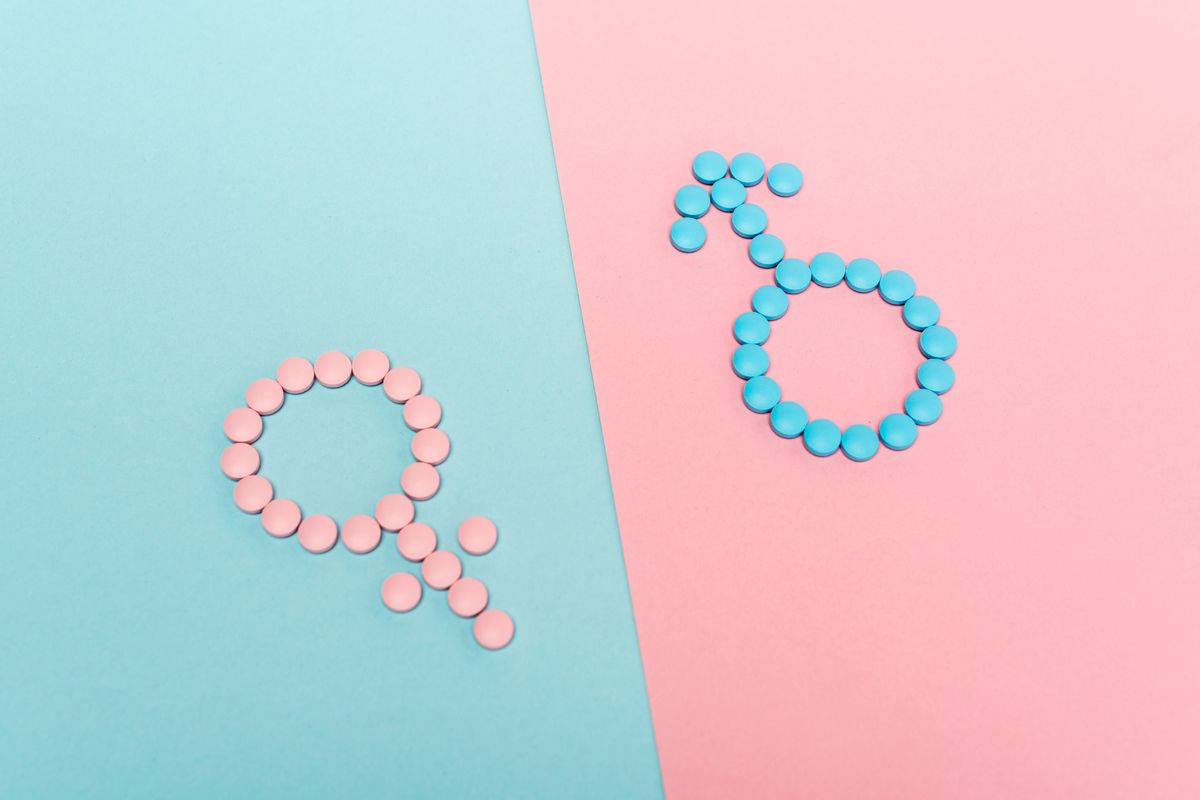Hormones are chemical substances produced by various glands in the body, such as endocrine glands (e.g. thyroid, pancreas) or the ovaries and testes. These biological messengers communicate with various organs and tissues, controlling metabolic processes, growth, development, as well as reproductive functions and much more. It is noteworthy that hormones affect the health of everyone, regardless of gender or age.
Hormone balance in men and its importance
It is often thought that hormones are exclusively the domain of women, but this is not true. Hormone balance plays an equally important role in men, although certainly of a slightly different nature. Male hormones, mainly testosterone, have a key function in regulating processes such as growth and development. During puberty, testosterone stimulates the development of male sexual characteristics such as the growth of muscle mass, voice and facial hair. It is testosterone that is responsible for the male physique. In addition, male hormones influence sexual function. They control libido, or sexual desire, and the ability to achieve and maintain an erection. Hormone balance is therefore crucial for men's sexual health. Male hormones also have a significant impact on body weight regulation. Testosterone influences metabolism, helping to maintain a healthy body weight. A deficiency of this hormone can lead to overweight and obesity. Additionally, male hormones affect mental health. Testosterone deficiency can result in depression, fatigue and decreased energy.
Hormone balance in women and its importance
In women, hormonal balance is particularly important due to the menstrual cycle and the ability to procreate. The main hormones that regulate women's health are oestrogen and progesterone. Female hormones control the menstrual cycle, affecting ovulation, fertility and menstrual regularity. Hormone deficiency can lead to cycle irregularity. In addition, female hormones are crucial to the ability to get pregnant and maintain a pregnancy. Hormone balance is important both during family planning and during pregnancy. Estrogens also affect bone health. They control bone density, and estrogen deficiency in older women can lead to osteoporosis. Additionally, hormonal changes can affect women's mood and mental state. An increase in hormone levels can result in an elevated mood, while a decrease can lead to premenstrual tension or postpartum depression.
Effects of hormonal imbalance
Hormone deficiency can affect various aspects of health and well-being. The symptoms of hormone imbalance are varied and depend on the type of hormone that is deficient and the gender and age of the patient. Hormone imbalance can cause changes in mood and mental state, manifesting as depression, irritability, anxiety and decreased energy. It can also affect sexual function, leading to a decrease in libido in both men and women, and can result in erectile dysfunction in men.
In women, a deficiency of female hormones such as oestrogen and progesterone can lead to irregular menstrual cycles, which can affect the ability to get pregnant. In older women, estrogen deficiency can contribute to loss of bone mass and increase the risk of osteoporosis.
Weight control problems are another aspect of hormone deficiency that can affect the body's metabolism. Hormone imbalances can also affect the quality of sleep, leading to insomnia and sleep disorders.
In addition, hormones have a significant impact on the cardiovascular system, and hormone deficiency can increase the risk of cardiovascular diseases such as hypertension and atherosclerosis. The immune system can also be weakened, making the body more susceptible to infection and disease.
Hormone deficiency can also affect skin health, leading to dermatological problems such as acne, dandruff, dry skin etc. In addition, a reduced hormonal balance can result in fatigue and reduced physical performance.
External factors
One of the key factors that influence hormonal balance in men is physical activity. Regular exercise not only helps maintain a healthy body weight, but also lowers insulin levels and benefits hormone control. Lack of exercise and a sedentary lifestyle can lead to obesity, which in turn affects hormonal imbalances. Therefore, physical activity is not only beneficial for fitness, but also plays a key role in maintaining hormonal balance in men.
Stress, which we often deal with in our daily lives, also has an impact on our hormones. High levels of stress can lead to excessive secretion of cortisol, known as the stress hormone. This, in turn, can affect our hormonal balance and lead to various endocrine disorders, such as lowered testosterone levels and mood changes.
It is worth paying attention to environmental factors, including diet. What we eat has a huge impact on our hormonal balance. A diet rich in healthy fats, vegetables, fruit, whole-grain cereals and protein can support the normal function of the endocrine glands in men. In contrast, an excess of simple sugars, trans and saturated fats and processed foods can affect insulin resistance and endocrine disruption.
In addition, exposure to toxins and harmful chemicals in our environment can lead to endocrine gland disruptions. These substances, known as endocrine disruptors, can affect our hormonal balance and lead to various endocrine disorders.
This is why it is so important to maintain a healthy lifestyle, avoid excessive stress, get regular physical activity and maintain a good diet. Monitoring your hormonal balance and responding to any symptoms or changes in your mood is key to minimising the risk of endocrine disruption and enjoying better health and quality of life.

